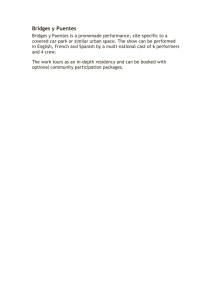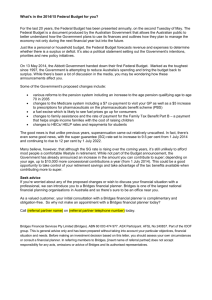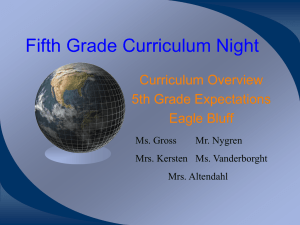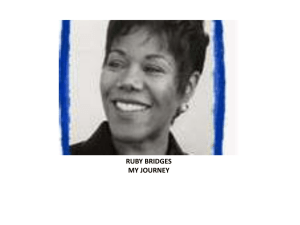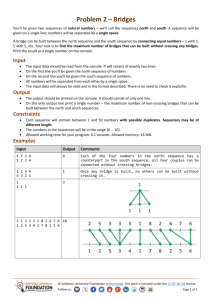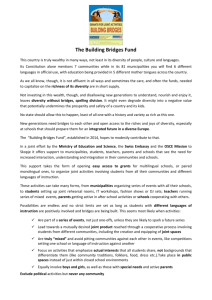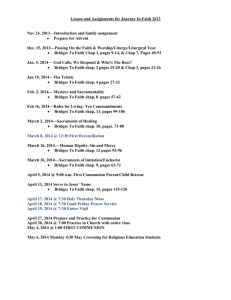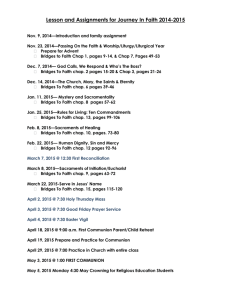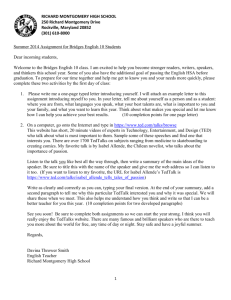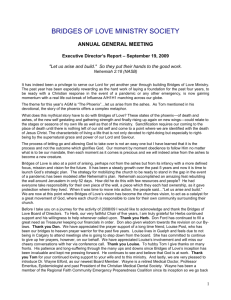Word docx
advertisement
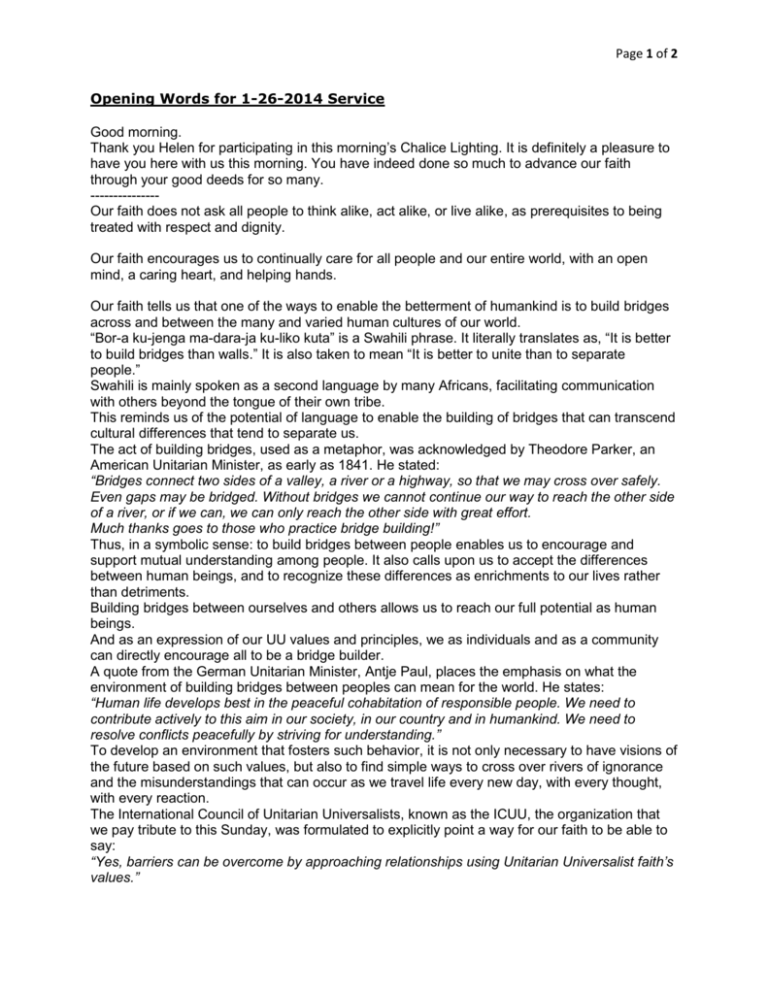
Page 1 of 2 Opening Words for 1-26-2014 Service Good morning. Thank you Helen for participating in this morning’s Chalice Lighting. It is definitely a pleasure to have you here with us this morning. You have indeed done so much to advance our faith through your good deeds for so many. --------------Our faith does not ask all people to think alike, act alike, or live alike, as prerequisites to being treated with respect and dignity. Our faith encourages us to continually care for all people and our entire world, with an open mind, a caring heart, and helping hands. Our faith tells us that one of the ways to enable the betterment of humankind is to build bridges across and between the many and varied human cultures of our world. “Bor-a ku-jenga ma-dara-ja ku-liko kuta” is a Swahili phrase. It literally translates as, “It is better to build bridges than walls.” It is also taken to mean “It is better to unite than to separate people.” Swahili is mainly spoken as a second language by many Africans, facilitating communication with others beyond the tongue of their own tribe. This reminds us of the potential of language to enable the building of bridges that can transcend cultural differences that tend to separate us. The act of building bridges, used as a metaphor, was acknowledged by Theodore Parker, an American Unitarian Minister, as early as 1841. He stated: “Bridges connect two sides of a valley, a river or a highway, so that we may cross over safely. Even gaps may be bridged. Without bridges we cannot continue our way to reach the other side of a river, or if we can, we can only reach the other side with great effort. Much thanks goes to those who practice bridge building!” Thus, in a symbolic sense: to build bridges between people enables us to encourage and support mutual understanding among people. It also calls upon us to accept the differences between human beings, and to recognize these differences as enrichments to our lives rather than detriments. Building bridges between ourselves and others allows us to reach our full potential as human beings. And as an expression of our UU values and principles, we as individuals and as a community can directly encourage all to be a bridge builder. A quote from the German Unitarian Minister, Antje Paul, places the emphasis on what the environment of building bridges between peoples can mean for the world. He states: “Human life develops best in the peaceful cohabitation of responsible people. We need to contribute actively to this aim in our society, in our country and in humankind. We need to resolve conflicts peacefully by striving for understanding.” To develop an environment that fosters such behavior, it is not only necessary to have visions of the future based on such values, but also to find simple ways to cross over rivers of ignorance and the misunderstandings that can occur as we travel life every new day, with every thought, with every reaction. The International Council of Unitarian Universalists, known as the ICUU, the organization that we pay tribute to this Sunday, was formulated to explicitly point a way for our faith to be able to say: “Yes, barriers can be overcome by approaching relationships using Unitarian Universalist faith’s values.” Page 2 of 2 It is truly a pleasure of to have this opportunity to present a service that brings to your awareness the many concrete “good-works” that our faith is doing, and to hopefully peak your interest in wanting to know more.
